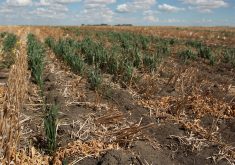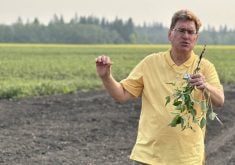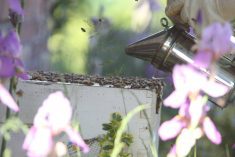REGINA — In anticipation of another dry year, the Saskatchewan government has already announced two drought-related measures for cattle producers.
Agriculture minister David Marit told the Saskatchewan Beef Industry Conference last week that grazing rates on crown land would be frozen at 2022 levels and producers who have to reduce stocking rates on leased crown land will be eligible for reduced rent.
Both of these were in place last year as well.
“The rates are always based on market price,” Marit told reporters.
“We would have seen another significant increase so this, we felt, was the right thing to do, to freeze it again.
Read Also

Government, industry seek canola tariff resolution
Governments and industry continue to discuss how best to deal with Chinese tariffs on Canadian agricultural products, particularly canola.
“We want to make sure patrons are compensated, I would say that, for the respect they have for the pastures, native grasslands, here in the province.”
Marit said producers are the best custodians of the land, and they know when they should pull their cattle off the grass. If the cattle aren’t on the pasture, the producer won’t pay rent, he said.
Marit said everyone is concerned with the lack of snowfall, particularly in the areas hit hardest by drought in 2023. There was good moisture from fall rain in some regions.
“We’ll continue to watch it. I’m hopeful that we’ll see some significant snowfall between now and April, and that’s really the best snowfall we get anyhow,” he said.
Forecasts of well-above normal temperatures for late January and early February won’t help any snow that is on the ground.
Cattle producers have been culling hard as a result of the droughts of 2021 and 2023, and seven years’ worth of drought in some areas. Marit said he is concerned about the declining cow herd and said good moisture would stem that trend.
“I’ve talked to a lot of ranchers that were running 500, 600 head that have reduced it down to 350 and 400,” he said.
The deadline for cattle producers to apply for help through the Canada-Saskatchewan Feed Program is March 1, 2024. It covers up to 70 percent of extraordinary feed and freight costs incurred after May 1, 2023, and is also available to bison, elk, deer, sheep, goats and horses. Producers must have lost a minimum of 25 feed days.
In November, governments estimated payments from business risk management programs to grain and livestock producers would total nearly $2 billion.


















